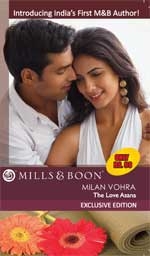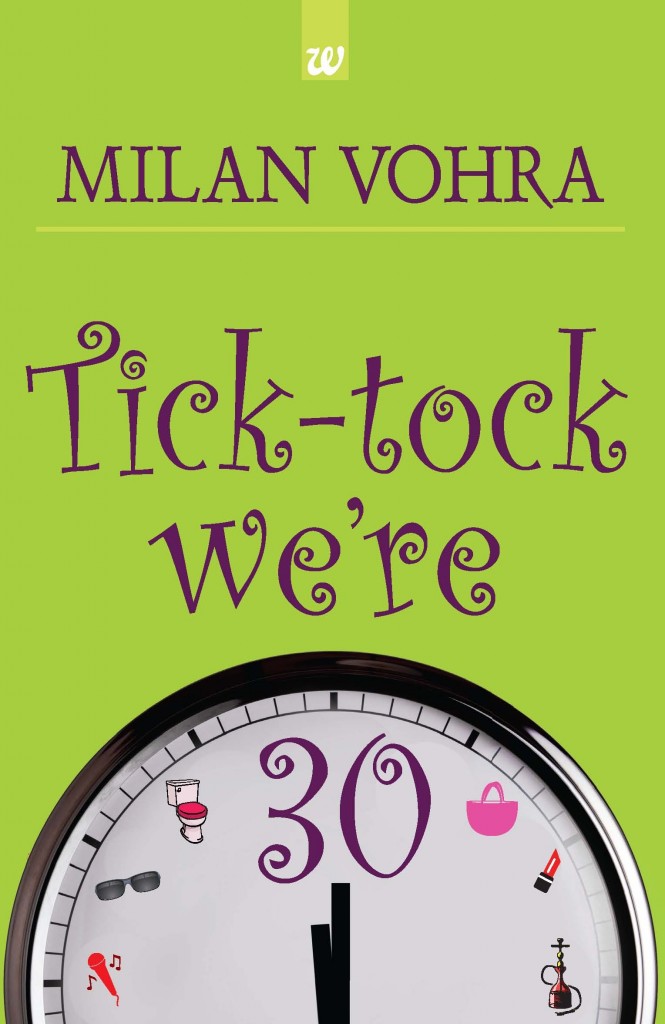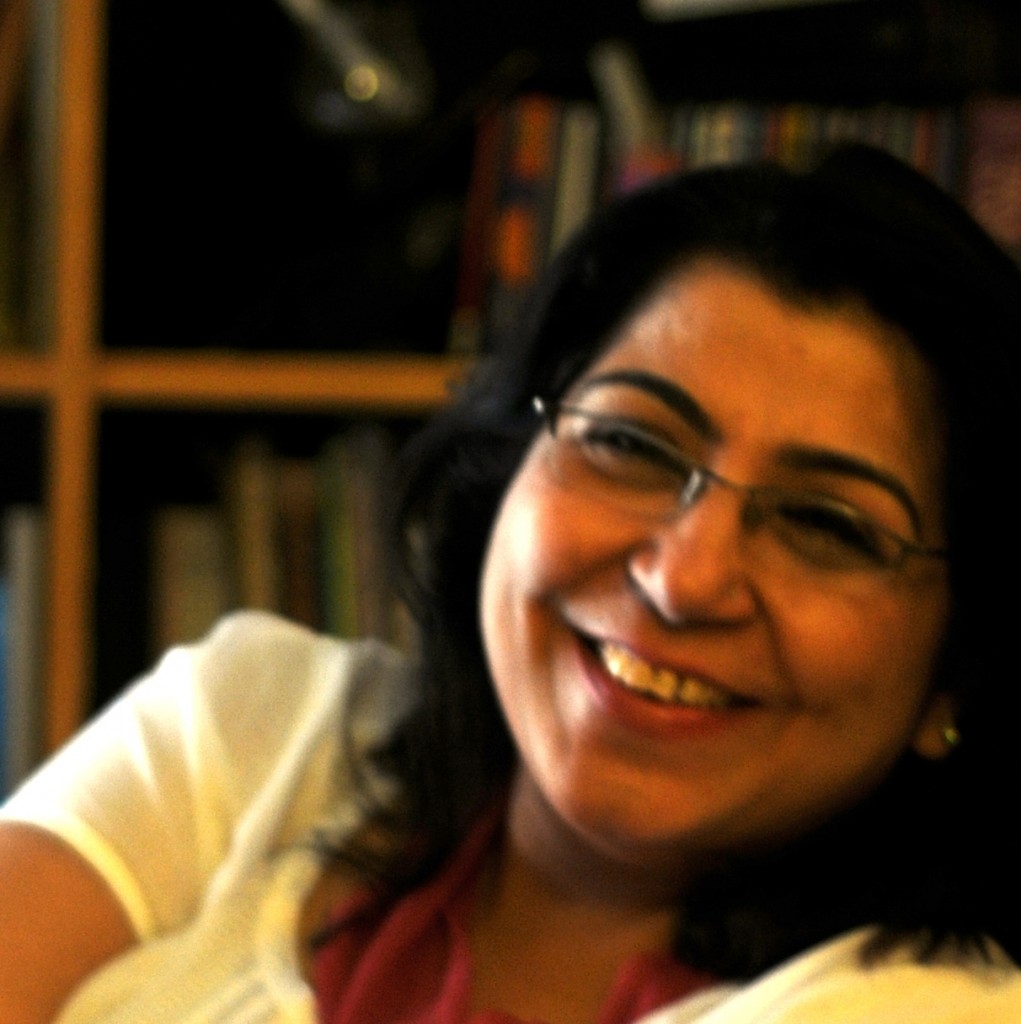It’s romance all the way for Milan Vohra
 “Well, I personally think there’s no new animal that’s suddenly emerged called ‘today’s woman’. Women have always been far more on top in any situation. We’ve always known how to deal better with things generally including emotions and people and countries.”
“Well, I personally think there’s no new animal that’s suddenly emerged called ‘today’s woman’. Women have always been far more on top in any situation. We’ve always known how to deal better with things generally including emotions and people and countries.”
Womentalk blogger Debarati Mukherjee speaks to Milan Vohra, the first author in India to write for Mills and Boon, the publisher known for its series of novels on romance.How did you start writing fiction?
I’ve been the creative director at some of the country’s top advertising agencies, but about three years ago, when I lost my father, who I was very close to I started feeling very low. I moved to different cities, took some career breaks after having my kids, struggled without support systems in a new city. Some of my close family members were constantly dealing with major health issues as they grew older and I was working insane hours at a job that came with a fancy designation but was hugely stressful.
At that point I realized I just wasn’t having fun anymore. I quit the job and started travelling more often because being able to travel became a high priority for me – but I still felt the void. I was missing that sense of obsessive purposefulness that is a big driving force for me. I enjoy being obsessed by what I’m doing.
Writing fiction happened as a happy accident around then. I’d just read a book by Randy Pausch called The Last Lecture in which he spoke of going out and doing the simple, fun things he wanted to do as a child. In his case it was to be an ‘Imagineer’ at Disney. Around that time some friends had been mailing me about a short story writing contest by Harlequin Mills & Boon.
I remember thinking that sounded like a lot of fun. But it was wishful thinking because the house was full of house guests, not the most accommodating. It was the last date to submit entries, also the night of my wedding anniversary. After a disastrous dinner out and a couple of margaritas – I wrote a story called ‘The Love Asana’ on an impulse. At 2 a.m. I started reading it to a close friend. Since I’m still a person who writes long hand and is daunted by the keyboard for any idea flow to happen, my friend insisted on keying it in for me as I read the story out to her.
We giggled our way through it and I mailed it literally at the nth minute. That story went on to win nationally, made me India’s first Mills & Boon author and brought me a lot of media attention. Talk of one impulsive decision leading to crazy things!
Why did you choose fiction as your genre?
I’ve always been a fiction reader. It seemed most natural to write fiction. As a kid too, I enjoyed giving full reins to my imagination. When people narrated normal everyday incidents, I would keep seeing it very visually and build extended scenarios around them.
How was Love Asana for you?
It was quite a lot of fun writing it once the editors in U.K. and I got past the initial period of understanding Indian sensibilities and also what the M&B genre demands. The indisputable fact is that a Mills & Boon is a genre book which is always centred on the hero and heroine and their journey to finally figure out they love each other.
It’s what readers want when they pick up an M&B. Given that, I was glad that I was able to write in a lot more in terms of the main characters’ emotional highs and lows. I ended up doing a lot of research on yoga too because Pari, my heroine, who is a yoga instructor has always found solace in it. The secondary characters too in ‘The Love Asana’ were pretty well developed and came across as real people with real problems.
What is ‘Tick-tock we’re 30’ about?
‘Tick-tock we’re 30’ is a book about twelve characters, six guys and six girls who make a pact to meet when they all turn 30. The story is about the week of their completely crazy reunion when they come to live together under one roof. There’s also another pact that’s got Lara, my heroine in a flap. A pact she made back then with Nishad, a guy from the group, that if neither of them were hitched by the time they were 30 they’d hook up with each other. Except of course, Lara had a bad-ass boyfriend called Ranndeep she’d been sure she’d end up with.
The last thing she wants now is to give Nishad a chance to say ‘I told you so’. So she needs to drum up another love interest for the week. Herein enters Perzaan, an adorable, very cool Turkish dude whom most of my lady characters are in love with.
What was the inspiration behind penning Tick Tock we’re 30?
I had a large group of friends I grew up with in Delhi who kept talking about having a reunion on the eve of the millennium. And it kept getting postponed again and again till one day I just decided, enough. These guys are never going to get their act together. I’m going to write myself a new set of friends who are even more whacko and lovable and make this reunion happen.
I tell them this is my revenge, but actually this is a nostalgic book for me. A salute really to the friends I grew up with, now separated by continents and the business and busy-ness of life. This book is for everyone who has known what it is like to have a group that can pull your leg constantly and mercilessly but huddle around you when it matters.
And for those who haven’t had the benefit of being part of such a group, ‘Tick-tock we’re 30’ gives you a set of friends you will really feel sad about leaving when the book ends. This is what so many readers tell me.
How does it feel being India’s first Mills & Boon author?
It will always mean something really special. To think that you do something very spontaneously and before you know it, you’re getting frantic calls, being told you’re in the top 10, could you come down to Mumbai and so on. You go, not expecting anything to come of it, other than taking in a great view of Marine Drive which I’ve always been partial to…
Next thing you know, you’ve got people interviewing you, friends from all over the world, I mean really even places like Lagos calling to say, hey we saw you on this news channel, in that London newspaper; you’re on a show with Penny Jordan (the M&B Goddess) who was grace personified to me, the new kid on the block… People coming up and sharing their own love stories the minute they realised I’d written an M&B. I still find that very sweet! Look, the media attention my writing the first Indian Mills & Boon got was fantastic, but I’m just not the kind of person I hope to believe any of it means anything.
I enjoyed my 15 seconds of fame and then got down to thinking what do I really feel like writing next? That next -was my second book, Tick-tock we’re 30. The experience was so joyous that it’s hard to even explain it. The reward is also in the way people have been responding with such genuine delight, telling me the way they bunked work to stay in to finish it, or how they are already re- reading the book. Many readers, some as young as 14 and others as old as 65 write in saying they just didn’t want the book to end.
In Tick Tock we’re 30, what are the qualities that you have given to your women? Are they a reflection of urban Indian woman?
Tick-tock we’re 30 has six primary women characters. These are definitely all urban women, but the number 30 in the title has nothing to do with ageing angst, or the biological clock. Thirty is just a milestone they have agreed on, to meet and come together to celebrate. I wanted to be very careful not to try to create unreal Indian Sex and the City clones.
These are contemporary Indian women who have decent relationships with their parents, even if they choose to work and live in different cities or countries. They are career-driven, their work is important to them and especially to deal with the sneaky competitive people they come up against, but it’s a realistic depiction. Bar one character, Maneka, my spunky ladies in Tick-tock we’re 30 are not obsessed by careers. The very fact that they have all put aside a week to be with their friends is reflective of Indian urban women today who, I think, realise the importance of work-life balance.
Like the upbeat urban women in India, the girls in Tick-tock we’re 30 know how to have fun and are not spending their lives in search of ‘the one’. If he happens along the way, great! Lara, who is my main female protagonist, is a model coordinator running her own small business. She also volunteers her time at an NGO. Like a lot of women today, I wanted Lara to be passionate about doing more with her time than just earning a living.
What according to you defines the traits of today’s women?
Well, I personally think there’s no new animal that’s suddenly emerged called ‘today’s woman’. Women have always been far more on top in any situation. We’ve always known how to deal better with things generally including emotions and people and countries. Ahem. (Milan grins broadly).
Perhaps one thing that is different between women some generations ago and our generation and our kids’ generation is there is greater impatience and intolerance now.
But I do love the fact that there is really no domain left today that was traditionally a man’s domain where a woman hasn’t gone and made her mark. A friend from my school was the youngest woman pilot in civil aviation in the world. Very recently I also read of a woman coolie at Agra railway station who was awarded by a prominent Indian newspaper as a woman achiever. This woman is not just a mother but pulls her own weight in every way, walking beside men, lifting loads of heavy luggage on her head, matching them step for step.
I also like that there is a greater openness today. Be it in discovering sexuality or in being your self – without stereotypes.
Do stories about women, especially if written in a lighter vein, get classified as chick-lit?
Yes. Unfortunately it does seem to happen. There’s many a good book that’s been neglected I’m sure because it had a pink cover (that typifies chick-lit). I wonder if people think – slap on a pink cover and there, you have a captive market! I spoke with my editor and fortunately we were on the same page about this – No pink cover for ‘Tick-tock we’re 30’! Male authors who try and tell a story with humour don’t deal as much with this. I have a basic quarrel with trying to define any kind of writing by gender. Nobody ever said “Oh spy fiction? Men seem to read it more. Let’s call all of them ‘Boy Books”. And while we’re at it, can we colour code all the covers blue? But more and more men I know give a load of crap about a reader gender stereotype and completely enjoy reading what I’ll loosely call feel-good fiction.
Interview: Debarati Mukherjee
Editor: Manasi Gopalakrishnan




